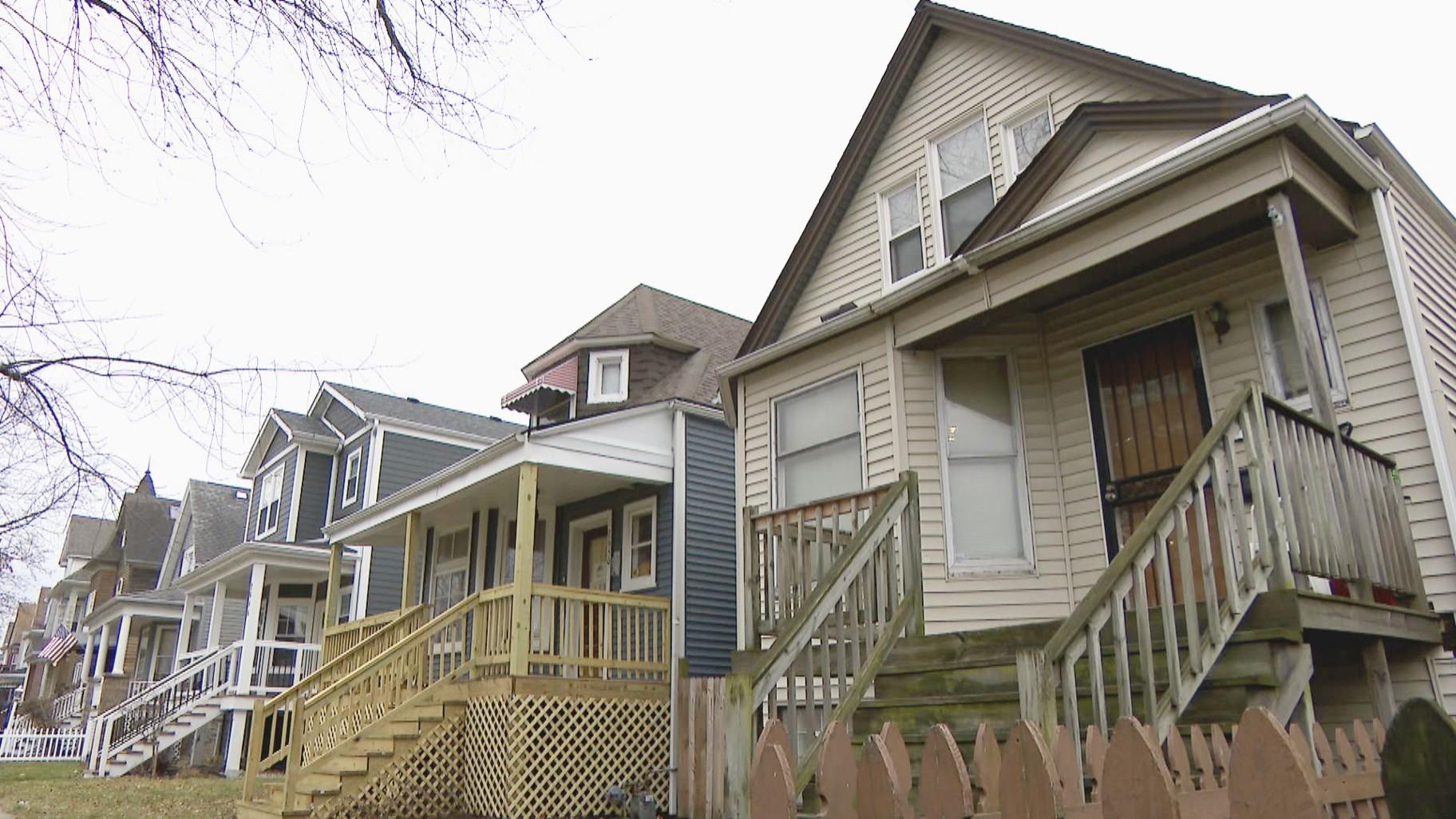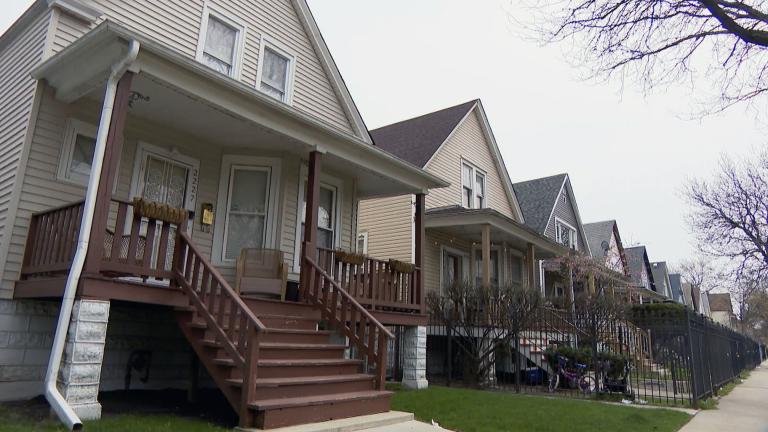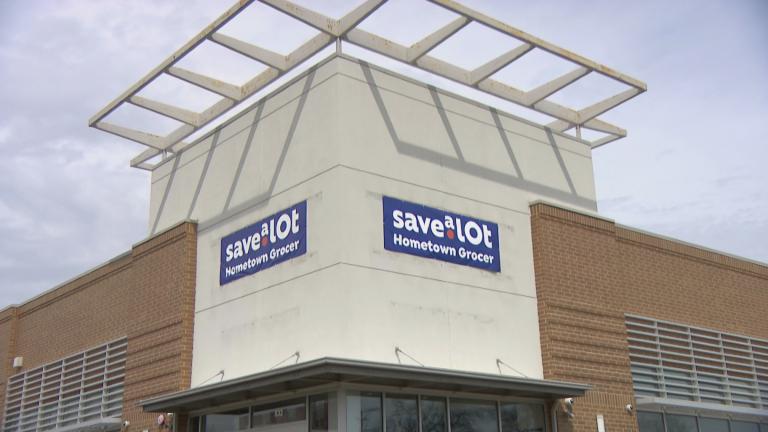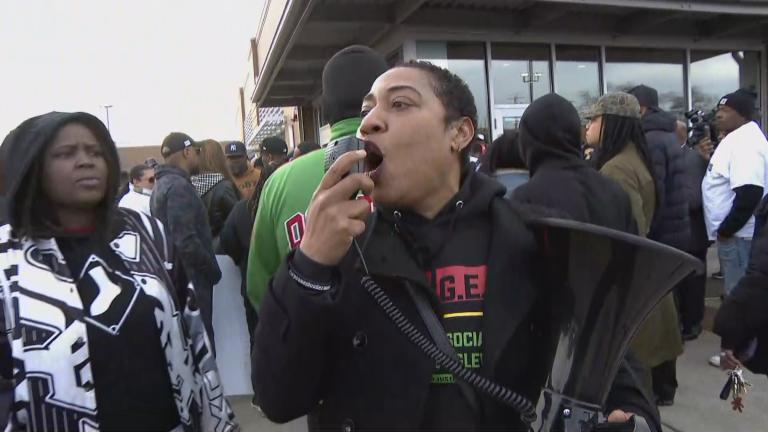 (WTTW News)
(WTTW News)
Chicago should borrow $1.25 billion during the next five years to fund a wide-ranging slate of projects designed to expand the supply of affordable homes and good-paying jobs in neighborhoods that have suffered during decades of disinvestment, Mayor Brandon Johnson proposed Wednesday.
The proposal, now in the hands of the Chicago City Council, would phase out the city’s decades-long reliance on tax-increment financing districts, known as TIFs, and reshape the way Chicago uses its financial resources to spur redevelopment and eradicate blight.
Johnson cast the proposal as a fulfillment of a promise he made during the 2023 campaign to make Chicago a more equitable place to live by “investing in people” and expanding the city’s economic capacity — without raising taxes on Chicago property owners.
“Too many neighborhoods, including my own, bear the scars of disinvestment and neglect,” Johnson said after Wednesday’s City Council meeting. “Too many communities on the South and West sides in particular have not benefitted from the prosperity of our tremendous city.”
The borrowing will allow the city to confront the wealth gap that divides Chicago, Johnson said.
“While this administration can’t undo generations of disinvestment overnight, you better believe we can offer a vision that charts a new path,” Johnson said.
The proposal was designed to allow the city to provide assistance for new businesses, restaurants, affordable homes and cultural facilities not just in parts of the city where property tax revenue has been growing, but also where it has been stagnant or declining for many years — a reminder of the legacy left by modern segregation, Johnson said.
For many years, TIF districts have claimed a growing share of city property tax revenues, fueling the debate over whether the districts, which capture all growth in the property tax base in a designated area for 24 years, exacerbate growing inequality in Chicago.
Forty-five of the city’s 127 TIF districts are set to expire before the end of 2027, giving Johnson a unique opportunity to reshape the way the city approaches development without requiring the City Council to consider what would likely be a politically radioactive property tax increase.
Once those TIF districts expire, the funds they had been collecting — estimated at $2.2 billion through 2039 — would flow instead to the area’s taxing districts, including the city, the Chicago Public Schools and the Chicago Park District. That would allow the city to pay off the debt — without triggering a property tax increase.
If approved, the city would borrow $250 million annually for each of the next five years to fund programs designed to help boost small businesses and nonprofit organizations while working to fill Chicago’s affordable housing gap of nearly 120,000 homes, according to the proposal.
The proposal sets up another test of Johnson’s ability to convince the City Council to follow his lead. Since their creation in the mid-1980s, TIFs have been beloved by alderpeople for providing a dedicated fund for a host of programs, ranging from road improvements to school additions and expanded park facilities. Those projects are not OK’d without the approval of local alderpeople, giving them a significant amount of power at City Hall.
That means transforming those dollars into a citywide pool of money runs the risk of reducing each alderperson’s power — and forces alderpeople to compete with their colleagues and lobby the mayor to ensure that their favored projects and initiatives are funded.
Ald. Raymond Lopez (15th Ward), a frequent critic of the mayor, blocked the proposal from advancing at Wednesday’s City Council meeting directly to a hearing and a vote. Instead, the City Council’s Rules Committee will have to vote to advance the measure at a yet-to-be scheduled meeting.
Lopez told WTTW News he blocked the proposal from advancing because he has a significant number of questions about the borrowing — and whether the city has efficiently spent the $3.25 billion it borrowed in 2021 and 2022 to fund an infrastructure program crafted by former Mayor Lori Lightfoot.
Contact Heather Cherone: @HeatherCherone | (773) 569-1863 | [email protected]






